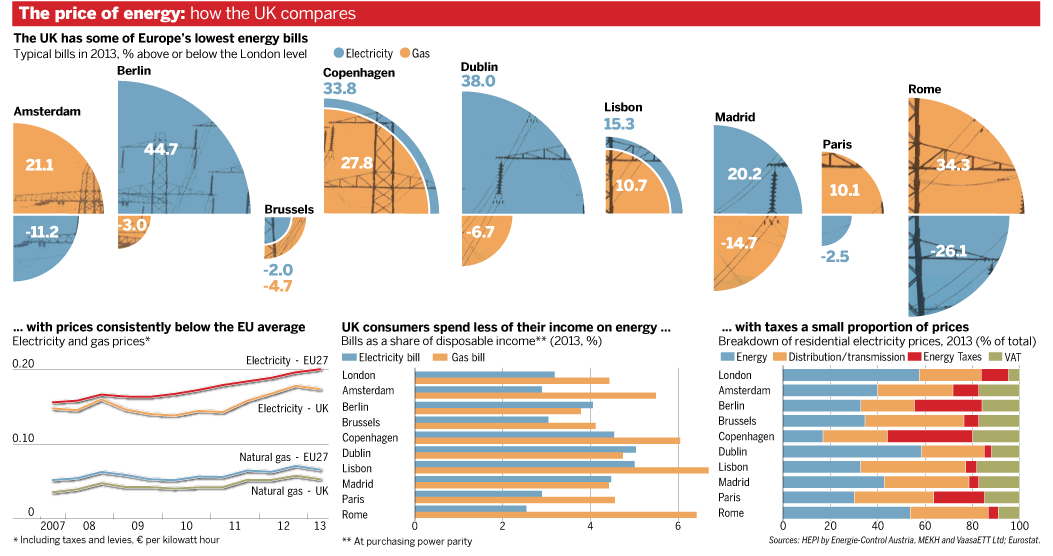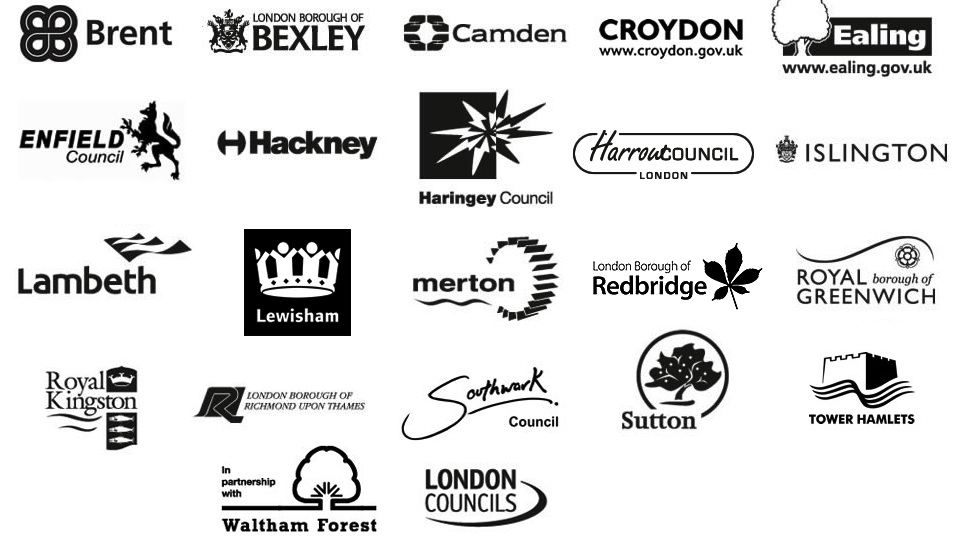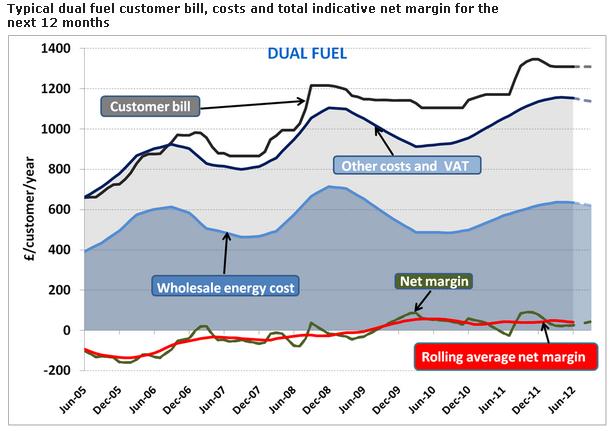Site search:
-
What’s new?
Energy for London Tags
Brent Buildings Camden Carbon Emissions CHP Cities Climate Adaptation Community Heating Community Initiatives Croydon Data DECC Decentralised Energy Distribution ECO Energy Costs Energy Efficiency Enfield FIT Fuel Poverty Funding Green Deal Hackney Haringey Housing Islington Lambeth Library Local Authorities Mayor Newham Ofgem Olympics Photovoltaics Planning RE:FIT RE:NEW Renewable Energy Retrofit Southwark Tower Hamlets Transport Waltham Forest Waste WestminsterEnergy Archives:
- February 2021 (1)
- January 2021 (15)
- December 2020 (15)
- November 2020 (9)
- October 2020 (3)
- August 2020 (5)
- July 2020 (3)
- June 2020 (4)
- April 2020 (10)
- March 2020 (5)
- February 2020 (2)
- January 2020 (3)
- October 2019 (1)
- September 2019 (4)
- August 2019 (2)
- July 2019 (1)
- August 2018 (1)
- November 2016 (8)
- October 2016 (8)
- September 2016 (2)
- August 2016 (8)
- July 2016 (14)
- April 2016 (12)
- March 2016 (16)
- February 2016 (8)
- January 2016 (4)
- December 2015 (1)
- November 2015 (1)
- October 2015 (16)
- September 2015 (3)
- June 2015 (1)
- May 2015 (1)
- April 2015 (1)
- March 2015 (1)
- February 2015 (1)
- January 2015 (1)
- December 2014 (18)
- November 2014 (4)
- August 2014 (8)
- July 2014 (7)
- June 2014 (25)
- May 2014 (8)
- April 2014 (4)
- March 2014 (12)
- February 2014 (7)
- January 2014 (13)
- December 2013 (11)
- November 2013 (15)
- October 2013 (15)
- September 2013 (18)
- August 2013 (5)
- July 2013 (20)
- June 2013 (33)
- May 2013 (8)
- April 2013 (16)
- March 2013 (25)
- February 2013 (14)
- January 2013 (20)
- December 2012 (23)
- November 2012 (23)
- October 2012 (25)
- September 2012 (14)
- July 2012 (12)
- June 2012 (43)
- May 2012 (20)
- April 2012 (8)
- March 2012 (40)
- February 2012 (39)
- January 2012 (40)
- December 2011 (22)
- November 2011 (40)
- October 2011 (33)
- September 2011 (48)
- August 2011 (40)
- July 2011 (58)
- June 2011 (41)
- May 2011 (80)
- April 2011 (38)
- March 2011 (33)
- February 2011 (25)
- January 2011 (24)
- December 2010 (3)
- November 2010 (7)
- October 2010 (6)
- September 2010 (7)
- August 2010 (1)
- July 2010 (2)
- June 2010 (4)
- May 2010 (1)
- March 2010 (3)
- February 2010 (3)
- December 2009 (5)
- November 2009 (2)
- October 2009 (3)
- July 2009 (3)
- June 2009 (1)
- April 2009 (1)
- March 2009 (1)
- February 2009 (1)
- January 2009 (1)
- December 2008 (2)
- October 2008 (1)
- September 2008 (1)
- July 2008 (1)
- March 2008 (2)
- January 2008 (2)
- October 2007 (1)
- September 2007 (3)
- July 2007 (1)
- March 2007 (1)
- February 2007 (3)
- November 2006 (3)
- August 2006 (1)
- February 2006 (1)
- May 2005 (1)
- February 2004 (1)
Tag Archives: Energy Costs
District Heating cost comparator tool
15 December 2015: Useful response to the following PQ on district heating – especially in relation to work to launch an online heat ‘comparator tool’
Lord Black of Brentwood: To ask Her Majesty’s Government whether they have made any assessment of the cost of energy bills to people served by District Heating Networks.
Answered by: Lord Bourne of Aberystwyth: 15 December 2015
In March 2015 DECC published a report by AECOM titled ‘An Assessment of the Costs, Performance, and Characteristics of UK Heat Networks’. The report included a review of the prices charged to final customers by a representative sample of heat networks (7 in total). The average heat price was found to be 6.43p/kWh but with a wide range of 4.64 to 9.88 p/kWh reflecting differences in network design, construction, commissioning and operation. On average this is less than the modelled cost of gas central heating in flats and terraced houses when boiler ownership costs are included (7.22 to 10.24p/kWh).
The Government is aware that costs to the consumer can vary and achieving cost savings is dependent on the quality of the individual network. DECC has supported industry development of a technical code of practice for heat networks, and worked closely with industry and consumer groups on the development of Heat Trust, an independent consumer protection scheme that launched in November 2015. There are also plans to launch an on-line cost comparator tool in 2016 to allow a consumer to assess their charges against gas central heating. This greater transparency of heat charges is complemented by the billing information requirements in the Heat Network (Metering and Billing) Regulations 2014.
One million Londoners don’t open their energy bills
4 April 2014: Evening Standard report results of a survey commissioned by what appears to be a new collective switching business ThisIsTheBigDeal.com. Results not published on the company’s website, and the numbers of people surveyed not revealed, but the story sets out that “almost a million Londoners do not bother to open their gas and power bills despite being worried about the cost, a damning survey revealed today”. Likely a 1,000 or so people surveyed, so some heroic extrapolation going on here – but issues raised such as consumers getting confused by their bills, and not even attempting to review their energy costs have been similarly identified in earlier studies. It’s not clear from the story if Londoners are better or worse than consumers in other regions.
DECC interestingly undertake a regular ‘Public Attitudes Tracker‘. The February 2014 release says the following (p4):
- 47% of people were very or fairly worried about paying their energy bills, similar to September 2013 (48%). In December 2012 50% of people were very or fairly worried about paying their energy bills, compared with 45% in September 2012.
- 32% of people said they will or may switch energy supplier in the next 12 months, unchanged since September 2013 (34%) and December 2012 (35%).
- Four in ten (42%) of people trusted their energy supplier to inform them of the best tariff for them, similar to March 2013 (46%) and March 2012 (44%), when the question was first asked.
- Half of people (49%) said they trusted their supplier to provide impartial and accurate advice on energy efficiency measures, similar to March 2013 (51%) and March 2012 (53%), when the question was first asked.
Nothing however on whether consumers understand their energy bill.
‘UK energy bills lower than much of EU’
January 2014: A recent FT article highlighting an issue lost in the recent
” A typical household’s annual electricity bill in Berlin, Copenhagen or Dublin this year was at least 34 per cent higher than one in London, according to the Finnish energy consultancy VaasaETT, which has done monthly EU household energy comparisons for the past four years that show UK bills are regularly among the lowest.”
” Parisians’ electricity bills were 3 per cent lower in 2013, but they typically paid 10 per cent more for gas than Londoners. In Rome, gas bills were 34 per cent above those in London, while in Copenhagen they were 28 per cent higher.”
“Compared with the EU-wide average, moreover, household electricity and gas prices have been lower in Britain every year since 2007, figures from Eurostat, the EU statistics body, show.”
It’s just a pity London homes are so energy inefficient!
The Big London Energy Switch
November 2013: London Councils’ Transport & Environment Committee recently discussed its initiative ‘The Big London Energy Switch‘ (further background to which is posted here). There have been two previous auctions through the collective energy switching scheme earlier this year, in April and June, and the initiative is now open to registration to users for a further auction to take place on 19 November. The London Councils’ paper highlights that a total of 1,847 residents switched through the first auction, saving on average £114 on their annual fuel bill.
Two more boroughs are now participating in this switch, bringing the total to 23. The note highlights some findings from the evaluation of the programme, undertaken by the Energy Saving Trust, stating:
- The scheme was effective at engaging with vulnerable residents, as evidenced by the high proportion of vulnerable residents that signed up, compared to the average proportions in London’s population – 41 per cent of those that registered their interest in the scheme indicated that they receive benefits.
- The tariffs offered from the energy companies for the spring auction were not attractive enough to persuade the expected proportion of registrants to make the switch – only 9 per cent of full registrants actually switched.
The note also highlights that the auction was originally set to take place in October however – “following discussions with energy suppliers, the date of the auction would be pushed back to 19 November… The reason is that there have been delays in Ofgem and the energy suppliers reaching consensus to implement the Retail Market Review (RMR) reforms, which are designed to make the market simpler and fairer for consumers.”
“Whilst changing the auction date is inconvenient for boroughs who have already publicised the date, the change increases the likelihood of energy suppliers providing bespoke tariffs in the auction and potentially increasing savings for the majority of residents.
“Overall we are disappointed that the date of the auction has been pushed back by a month, but hope that this will mean cheaper tariffs are offered by energy suppliers at auction and that more residents will be able to benefit from the scheme.”
The full EST evaluation report of the Big London Energy Switch, which includes 31 recommendations, can be downloaded here.
Londoners average annual energy bill
17 July 2013: Labour MP for Harrow West Gareth Thomas has asked the following parliamentary question on Londoners typical energy costs.
Mr Thomas: To ask the Secretary of State for Energy and Climate Change what estimate he or his officials have (a) made and (b) seen of the average annual energy bill for a typical family living in London in (i) 2009-10, (ii) 2010-11, (iii) 2011-12 and (iv) 2012-13; and if he will make a statement. [165934]
Michael Fallon: Average annual household spend on fuel and power in London is shown in the following table. This represents the average actual spend by households, and includes spend on all fuel types:
| Year | Average annual spend on energy (£) |
| 2009-11 | 1,082 |
These data are taken from the Living Costs and Food survey (LCFS), run by the Office for National Statistics (ONS). The data are published in the form of three year averages, due to the small sample sizes involved in this survey. The 2009-11 period is the latest for which data is available. The spend data shown are an average for all households, and do not specifically focus on families, as data at this level of detail is not available.
London Councils Energy Update
June 2013: The Chair’s report to the London Councils ‘Environment and Transport’ Committee, which took place last week, included the following update on the Big London Energy Switch, and a communication from London Councils to the Secretary of State at DECC on the Energy Bill.
Collective Energy Switching
2. The first auction for the Big London Energy Switch (BLES) was held on 9 April, with the switching provider (iChoosr) negotiating on behalf of about 150,000 residents across the country – the highest number of participants in a UK auction of this kind. The BLES secured 26,436 registrations of which 71% were able to save an average £122 per year.
3. The deadline for residents to decide whether they wanted to take up their offer from the auction was 20 May. Initial indications are that about 7% of those that signed up with the scheme accepted their offer, which is close to the proportions for previous collective switching schemes.
4. There will be another auction on 4 June, for which the BLES is doing low-key promotion rather than proactive engagement as for 9 April. However, we are planning another auction in early autumn with additional engagement targeted at signing up vulnerable residents and those in fuel poverty. This will use the remaining DECC funding (currently estimated at around £100k) and any registration fees from the April and June auctions.
5. We have established regular BLES meetings with iChoosr in the run up to the autumn auction to ensure improved liaison and knowledge-sharing and ultimately resident engagement. Our evaluation partner, the Energy Saving Trust, is beginning its evaluation of the scheme and we will build in learning from this for the autumn auction.
Energy Bill
6. Cllr West wrote to the Energy Secretary, Ed Davey, to highlight issues for boroughs on domestic energy tariffs and energy efficiency relating to the Energy Bill. We are now seeking a meeting with officials at the Department of Energy and Climate Change to discuss these.
7. The Bill itself is due to enter the Lords shortly, after having been considered in the Commons, and we are considering what further lobbying activity may be required.
It’s interesting to see that only 7% – or 1,850 households eventually took up the Big London Energy Switch offer – and – as stated – such a percentage is typical of these collective swtiching schemes. The Chair’s note doesn’t say who the provider selected was: it was Sainsburys. The following blog by iharrow. com highlights that the offer didn’t work for everyone – which is to be expected.
As the Chair’s report notes, an evaluation process is currently being undertaken by the Energy Saving Trust – which will be interesting to see – and the output from that will feed into the next auction to take place sometime in the Autumn.
The Big London Energy Switch
March 2013: The ‘Big London Energy Switch’ collective switching scheme was initiated earlier this year after securing £686,655 in funding from DECC (see earlier post here for full details). Those involved include London Councils, with 18 other boroughs and with the Royal Borough of Kingston as lead. Kingston is also where Secretary of State for Energy, Ed Davey, a longtime support of collective purchasing, is the local MP (see here for further details). The other 17 London boroughs are: Bexley, Brent, Camden, Croydon, Ealing, Enfield, Greenwich, Hackney, Haringey, Islington, Lambeth, Merton, Newham, Richmond, Southwark, Sutton and Waltham Forest.
A recent London Councils briefing paper highlights that three other boroughs (Lewisham, Harrow and Tower Hamlets) are now also supporting the scheme but are not in receipt of DECC funding. A Big London Energy Switch website has now been established along with an introductory video to the initiative.
The Scheme is currently procuring a switching provider with support from law firm Pinsent and Masons.
Energy buying plan to unlock investment for growth
December 2012: Interesting press release from the Cabinet Office stating that Government will use its considerable buying power to contract PPAs (power purchase agreements) directly with stalled renewable electricity projects.
“The Government Procurement Service (GPS), part of the Cabinet Office Efficiency and Reform Group, is the UK’s largest energy customer, spending £1.5bn a year on gas and electricity. GPS buys energy for 75% of the entire public sector which accounts for 3% of total UK energy demand. In the New Year it will open a pilot to diversify 2% of its demand, worth £25m a year.
For the first time ever, contracts will be offered direct to renewable generators for a set proportion of their capacity for up to 25 years. This will appeal to new projects which can bank on the guaranteed business to attract investment. We are aware of at least 150 projects which are currently stalled and may need finance. A small 10MW generator is estimated to return £5m a year to the local economy as well as creating jobs in the energy and construction industries. This pilot is for non-intermittent power such as biomass and energy from waste.”
Who supplies electricity to Londoners?
11 September 2012: A recent parliamentary question highlights the extent the Londoners continue to use the local energy supply company EDF Energy (who took over London Electricity fully in 2006) as their electricity supplier. The response reports on data from August 2010 and indicates that EDF Energy has a market share of 74% of London’s electricity market. In terms of dual fuel contracts, British Gas holds the largest market share in London across the ‘big six’ at 40%.
Factsheet on Energy Bills
June 2012: Ofgem factsheet providing a useful update and breakdown of what makes up an average energy bill.
Information in relation to the ‘supplier margin’ – that is the profit made by energy customers per customer made across different fuel types – is also published on a regular basis by Ofgem in their ‘Electricity and Gas Supply Market Indicators‘ paper. This highlights that Ofgem’s “estimates also show that for the 12 month period from June 2012 up to and including May 2013 the total indicative net margin for a typical, standard tariff dual fuel customer will be approximately £30 per customer.”
Affordable energy: what the experts say
May 2012: Friends of the Earth provide a quick run through of some of the issues associated with new power generation choices and the associated impact on consumers bills in this useful two-page briefing note.




